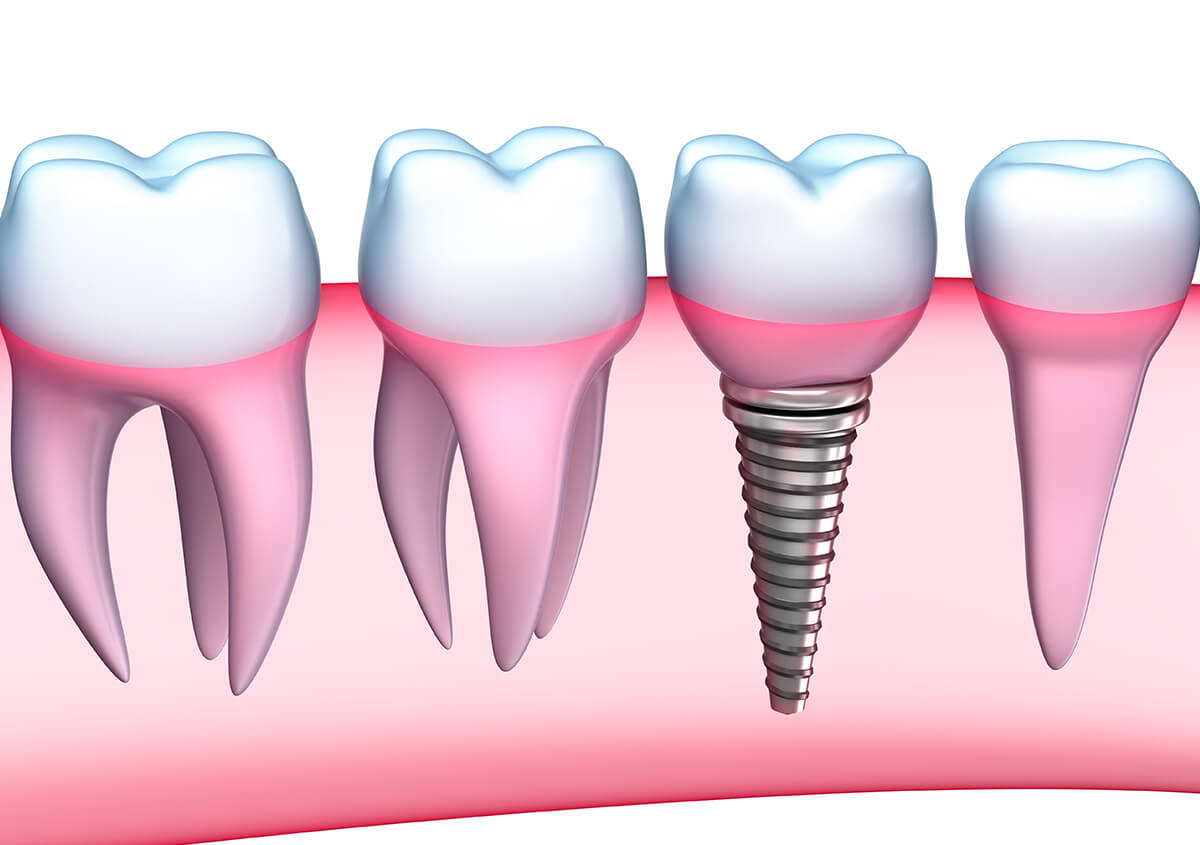

09
Jun
Three Ways Missing Teeth Can Negatively Impact Your Dental Health and Why You Should Consider Dental Implants

When you have missing teeth in your smile, you could find that you are embarrassed or suffer from self-esteem issues, resulting in you hiding your smile from others. We all take pride in our appearance and seek out solutions when there are aspects of it we wish to improve. While many who are missing teeth are incredibly aware of how it affects their appearance, far fewer think about the dental health implications of missing teeth. The truth is that missing teeth can lead to severe and harmful dental health issues in the future. If you are missing teeth, you should consider dental implants from your local dentist. Patients in the Aurora, Illinois area turn to Dr. Khaja Mohsinuddin and the team at Total Health Dental.
If you have a single or multiple gaps in your smile, you are far from being alone. It is estimated that around 178 million Americans miss at least a single tooth. If you have a missing tooth that is easily visible, you may be hiding your smile, but even if your missing tooth is out of sight, you still should not ignore it. Here are some impacts even a single missing tooth can have on your dental health.
Chewing and Digestion
One obvious obstacle you may notice upon losing a tooth (or teeth) is that chewing becomes more difficult. You might find chewing certain foods difficult that you easily ate before losing your tooth. While you may view this as a functional issue, which it is, it is also a health concern due to the role chewing has within the digestive process. Chewing is the initial step of the digestion process. When you cannot chew properly, your digestive system may have difficulty processing and absorbing nutrients from the foods you eat. Long-term, this could lead to nutritional deficiencies and also digestive disorders. Replacing missing teeth will allow you to thoroughly chew your food again so that your body can fully digest and absorb the necessary nutrients.
Facial Transformation
Much like how your teeth support each other, your jaw relies on your teeth to remain strong. When you lose teeth, your jawbone will eventually weaken, and your body will reabsorb the bone. This is a slow, gradual process and can lead to further tooth loss. Physically, the effects of jawbone loss are seen in your facial shape. When you begin to lose your jawbone, your face can take on a sagging, aging appearance. The only way to prevent this jawbone loss is with a dental implant. Because the implant is physically implanted in the jawbone, it mimics the function of a natural tooth’s root. The jawbone will fuse with the implant and remain strong.
Shifting Teeth
As was mentioned earlier, your teeth rely on each other for support. When a missing tooth compromises this support, shifting is an example of what can happen. When a lost tooth creates a gap in your smile, the surrounding teeth will slowly start to shift into that gap due to this loss of support. This means that, even if you have a straight and perfectly aligned smile when you lose a tooth, you will eventually see your remaining teeth begin to go crooked, shifted, and misaligned. Getting a dental implant in place with an artificial tooth will restore this support, so you do not need to worry about moving teeth.
Request an appointment
Schedule An Appointment Today!
Dental implants are an excellent treatment option for replacing missing teeth. Implants offer advantages over other tooth replacement options, including dental bridges and dentures. That is because they are surgically implanted in the jawbone, where bridges and dentures just sit on the gums. If you are interested in learning more about dental implants or are ready to sit down and discuss treatment options, please call Dr. Khaja Mohsinuddin at Total Health Dental today. To schedule an appointment, please call (630) 822-9600.

